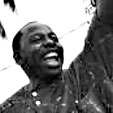 |
|
| Author |
 Topic Topic  |
|
sab

United Kingdom
912 Posts |
 Posted - 28 Oct 2006 : 19:09:28 Posted - 28 Oct 2006 : 19:09:28


|
Of course the ‘Material Girl’s’ newly owned/brought child will have opportunities but they will not replace those of knowing his language, culture & religion, which are important indicators of identity.
He will also be able to see through his adopted mothers aspirations of him becoming ‘ambassador to Malawi,’ possible again through the chequebook.
As he matures he may find himself thinking about being owned.
Anyone contemplating adoption can buy the following book from the BAAF website.
In Search of Belonging: Reflections from 57 trans-racial & transnational adoptees; Kym, who is of Afro-Caribbean and was raised by a white family, talks about her pain in an excerpt from a book published on the British Association for Adoption & Fostering (BAAF website).
“For as long as I can remember, I have always felt different to the other members of my family – both in my physical and spiritual being.My parents were always honest about my adoption and, from an early age, I asked questions about why I was a different colour to them. At home, as an infant I distinctly remember being in a warm and loving environment yet, when I entered the outside world I received cold and hostile responses from the community around me.”
“It did not take long for the children to start saying what they saw and calling me ‘Blackie’. The boys in the school were particularly cruel and would constantly taunt me about my appearance. Over time this affected my self-esteem and I became withdrawn and isolated. I did not want to play with the other children and I sank into a deep depression. My parents tried their best, but they had difficulties relating to just how painful these comments were and how traumatic school was. To me it was living hell. They told me to ignore it, but I absorbed Western beauty ideals, which are geared towards long blonde hair and blue eyes. I would pray to God every night that I could be white and fit in with my family. I quite literally used to avoid looking in the mirror because I could not stand what I saw staring back at me. I cannot put into words the type of crippling emotional pain that I felt in my childhood. That led me to several suicide attempts.”
This book has been edited by Dr. Perlita Harris herself a trans-racial adoptee & a lecturer at Bristol University.
Children are the most vulnerable citizens in any society and the greatest of our treasures. (Mandela - Noble Peace Prize ceremony, Oslo Norway 1993)
|
The world would be a poorer place if it was peopled by children whose parents risked nothing in the cause of social justice, for fear of personal loss. (Joe Slovo - African revolutionary) |
 |
|
|
serenata

Germany
1400 Posts |
 Posted - 30 Oct 2006 : 12:38:49 Posted - 30 Oct 2006 : 12:38:49


|
Thank you, Sab. I hope that things became better than they were in Perlita Harris' childhood, and of course there may be many adopted children who's life changed much to the better, e.g. for children who have been mistreated in their biological family. But cross-cultural adoptions always seems to be problematic.
Canadian Inuit actor Eric Schweig's experience is extreme, but I fear that at least concerning his ethnical group it was/is(?) not a solitary case:
http://www.mohicanpress.com/mo05005.html |
 |
|
|
Sister Omega

United Kingdom
2085 Posts |
 Posted - 30 Oct 2006 : 13:43:37 Posted - 30 Oct 2006 : 13:43:37



|
Thanx Serenta and Sab for showing the other side of the coin to us.
Peace
Sister Omega |
Peace
Sister Omega |
 |
|
|
mbay
Germany
1007 Posts |
|
 Topic Topic  |
|
|
|
| Bantaba in Cyberspace |
© 2005-2024 Nijii |
 |
|
|

